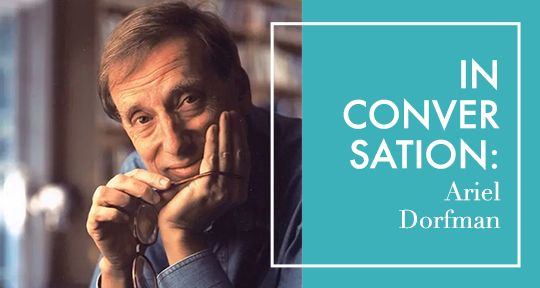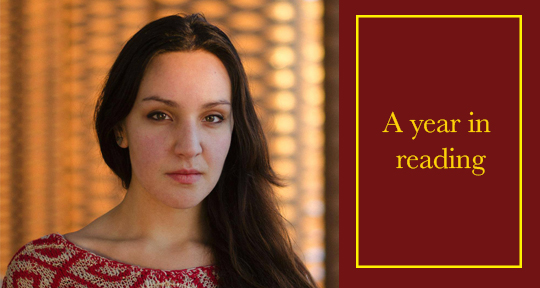In September, Argentine-Chilean novelist Ariel Dorfman released his latest novel, The Suicide Museum (Other Press)—one that has been fifty years in the making. In the narrative, we follow the author’s eponymous alter ego, who is sent by a man named Joseph Hortha to uncover the truth behind the death of socialist president Salvador Allende. Was it murder or suicide?
Fifty years ago, on September 11, 1973, the Chilean Armed Forces, led by Augusto Pinochet and with the support of Richard Nixon, the US government, and the CIA, launched a military coup against the democratically elected president of Chile, Salvador Allende. The coup targeted Palacio La Moneda, resulting in the death of President Allende and the dawn of a military dictatorship led by Pinochet, which lasted until 1990; during Pinochet’s rule, approximately three thousand people were killed, and one thousand more are still missing. Dorfman offers a unique perspective to these events; in 1973, he (and “Ariel”) served as cultural advisor to Allende. He was supposed to be with Allende in La Moneda on September 11, 1973, but switched places with a colleague at the last minute. So, the author survived—unlike many of his friends and colleagues.
Set in 1990, “Ariel’s” search occurs twenty-one years before Allende’s body was exhumed a second time, and a judge “with impeccable credentials,” according to Dorfman, finally determined his cause of death. Juxtaposed by this reality, The Suicide Museum is a political thriller, a historical fiction novel, and a murder mystery.
In the fallout of this turmoil, Dorfman has spent most of his life living in exile. Even after democracy returned to Chile, he’s remained abroad, returning only occasionally. We see and feel that distance and familiarity in The Suicide Museum; we feel “Ariel’s” nostalgia and survivor’s guilt, his shame and regrets, his courage and his dreams, and through that emotional journey, we also see Allende’s first exhumation, we feel the effects of the dictatorship, we see the end of that dictatorship, we get a glimpse of “Ariel’s” creative process, and we see how life rapidly changed for Chileans after the coup, through flashbacks.
“Ariel” and Joseph Hortha ruminate on life, death, suicide, socialism, capitalism, climate change, Latin America. Like a pair of boxers, these two friends, allies, adversaries, confidants, challenge each other, interject each other, insult, comfort, and—sometimes—agree. After claiming that Allende saved his life, Hortha now wants to know if Allende committed suicide. “Ariel,” then, must go to New York, London, Chile. He must talk to the people, to Allende’s gravedigger, to rivals and sympathizers. He must talk to Patricio Guijón, Allende’s doctor, who was next door at the time of Allende’s death. He must talk to Adrián Balmaceda, Allende’s bodyguard, and the last person to see him alive, to determine the presidente’s cause of death.
Ariel Dorfman remains a towering figure in Latin American and World literature. He’s the author of books such as How to Read Donald Duck: Imperialist Ideology in the Disney Comic, Death and The Maiden, and Heading South, Looking North. In this interview, we talked about his latest novel, but also about autofiction, inspiration, survivor’s guilt, his relationship with English and Spanish, living in exile, how Latin America is brothered through exile, the future of Chile, and what he remembers of that September 11, fifty years ago.
José García Escobar (JGE): I wanted to talk first about the blend between fact and fiction in The Suicide Museum. In Michael Chabon’s Moonglow, we can find a type of disclaimer at the beginning of the novel: “In preparing this memoir, I have stuck to facts except when facts refused to conform with memory, narrative purpose, or the truth as I prefer to understand it.” The book is marketed as a “novel,” and that word appears on the cover, but much like Chabon, the characters in this “novel”—particularly Ariel—call it a “memoir.” How did you handle this distinction?
Ariel Dorfman (AD): When I first realized that the only way—at least for me—to narrate this quest (the search for the truth about Salvador Allende’s death on September 11, 1973), was to send my own self—really, an alter ego—to Chile, I did so with both joy and trepidation. Trepidation, because it was risky to use my own life, sticking to as many details of that life as possible (my wife, my children, my friends, my return to my country in 1990), and to simultaneously treat all of it fictionally and invent many scenes and characters (including how I present myself) within the straitjacket of a pre-existent chronological order. And joy because I was able to explode the limits of the genre, particularly what is called “autofiction.”


